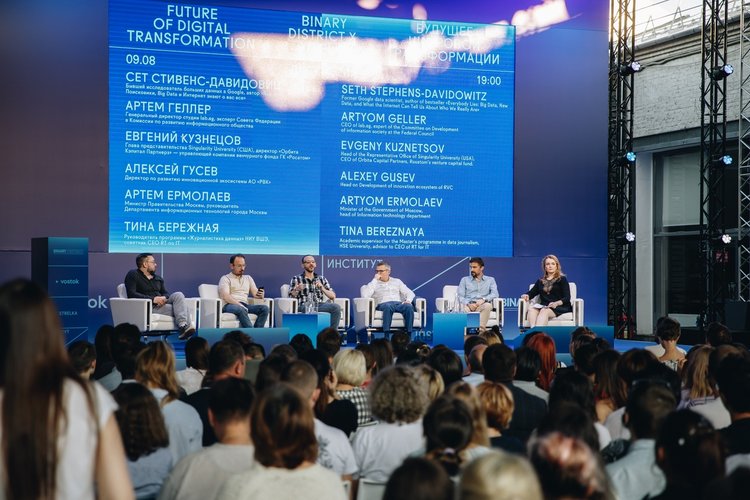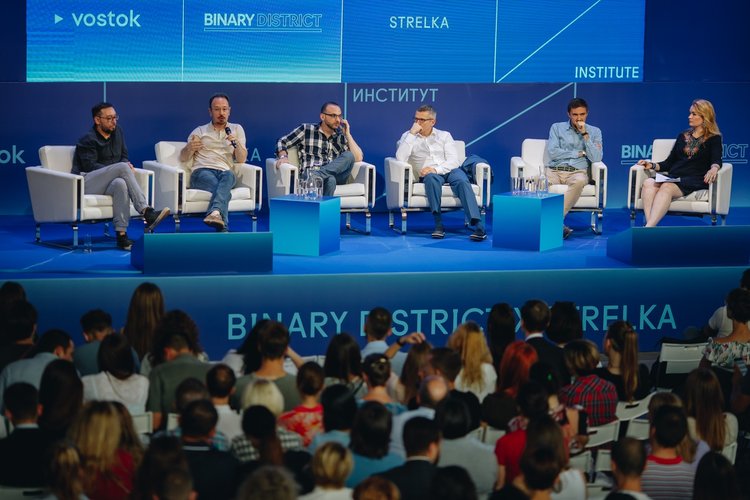In the modern world, information has become one of the main assets. Some data are more expensive than oil and precious metals. Each of us leaves its own digital footprint. Even if you do not have accounts on social networks, this does not mean that you remain anonymous. After all, Google knows more about us than the closest people. It is the requests in search engines to which we entrust our problems, fears and experiences.
On one hand, data analysis makes it possible to find a personalized approach to the society as a whole and to each individual in particular. Stores know which products to show you in the first place, and social networks find you possible friends. But where is the fine line, when does this network exhibitionism start to bring problems? Where does the private life of a person begin, in which no one can interfere, and how to draw a border line in the digital world? What is the role of state institutions in the analysis of large data? These and other questions were tried to be answered by the participants of the discussion "Future of Digital Transformation", which took place at the Strelka Institute.
New social contract
Modern society is mobile and cosmopolitan. Already now, in principle, you can permanently reside in a country without knowing the language. And in the future with the widespread introduction of electronic translators, you can safely go anywhere in the world. People and companies will choose those countries in which they will be comfortable to live and work in.
The most progressive states are created in comfortable jurisdictions. If one country tries to curb the information revolution, the other one will be obliged to force everyone to this revolution. As a good example, we see this trend right now in the crypto community as well. Market participants are ready to move to countries with progressive and understandable regulations. For example, many companies have already moved to Malta, which is trying to create the most comfortable conditions for the work of fintech companies.
"There are environmental states and there are state-barriers. But we must understand that restraining technology is useless. And any barrier will sooner or later fall. States are either transformed, or they cease to exist. Therefore, it is much more important not to understand who is the leader of the transformation, but how to make sure that this technological wave does not dare us," explained the discussion participant Evgeny Kuznetsov, Director of Orbit Capital Partners and the management company of Rosatom Venture Fund.
Therefore, the state needs to become a kind of an environment and an ecosystem that will be open to technology, but without violating the personal borders of citizens. After all, some states in the attempt to master the technology of data analysis become abusive. For example, in China, citizens are already planning to assign ratings. In a way resembles one of the Black Mirror episodes, where everyone puts scores to each other. A very similar system of social rankings are planned to be introduced in China. But this is more a radical exception.
Basically, states are thinking how to readdress the social contract. For example, electronic medical cards allow not only to collect data about patients, but also to analyze them. Such systems are already able to recognize the signs of cancer in the early stages, while not noticed by doctors. Thus, patients will have to trust the system with their data, but in return, will receive a new level of medical care. This is an attempt to reassemble a social contract. By the way, for the safe storage of medical cards, several projects have already been invented based on the blockchain technology. It is also likely that the distributed ledger will be the answer to many questions.
Rethinking personal privacy
During the discussion, experts also recalled that anonymity no longer exists. And while the states are only trying to get on a new technological wave, large corporations are already actively using big data. Giant companies have long since penetrated into our personal lives and we do not always notice it ourselves.
We have all become social network exhibitionists, and that’s a fact. If you think that the lack of an account in a particular network is a guarantee of your anonymity, do not flatter yourself. Suppose a big data analyst decided to find out whether you attended some event. He can do it very easily and quickly on the basis of open sources. For example, a specialist can expose your presence at an event from the photographs of other people you've been tagged on, or on your search in Google. It is most likely you were looking for a way to get to the venue of the event by public transport.
Search requests in general can give out our deepest secrets. According to the former researcher of big data in Google Seth Stephens-Davidowitz:
"The data is the serum of truth. If you ask in the U.S: "Are you racist?" Everyone will say: "No, I'm definitely not a racist." But in Google, millions of Americans every year look for racist jokes on the web,"- he explained.
This phenomenon is especially obvious if we compare what we write on our facebook page with what we ask in the search engines. For example, in social networks, according to some statistics, wives often write about their husbands the following characteristics: "the best", "my best friend", "amazing", "the greatest", "so cute". Whereas in Google, the search "Husband" goes with the following words: "gay", "a jerk", "annoying", "mean". Fortunately, the word "amazing" is also present on this list, although it is not very clear what the search engine should do in this case.
But the analysis of this "serum" can also be used for good purposes, Seth Stephen-Davidowitz is sure. For example, search requests can warn of a possible epidemic of influenza beginning in the region. Health services in the U.S. also analyze information, but the data collection process is very slow. When specialists analyze Google data, they can instantly say that an epidemic has begun in some city, because people are looking for ways to cure it.
In this case it is also a new model of the relationship between the state, the business and the society. By analyzing big data, people can get a more personalized approach in different social institutions. Imagine now the online cinema offers you the movies you would enjoy, based on analyzing your preferences. And in the future this technology can be used not only for the entertainment industry. Your child at school will be offered a more personalized training program. Or adjust your medical check-ups in the hospital based on the collected data.
However for this, all participants of the new ecosystem need to learn how to receive their benefits without breaking anyone's boundaries. In any case, it is already impossible to stop the process of technological revolution that has been started. Therefore, remember that your personal data is your main resource and value.



